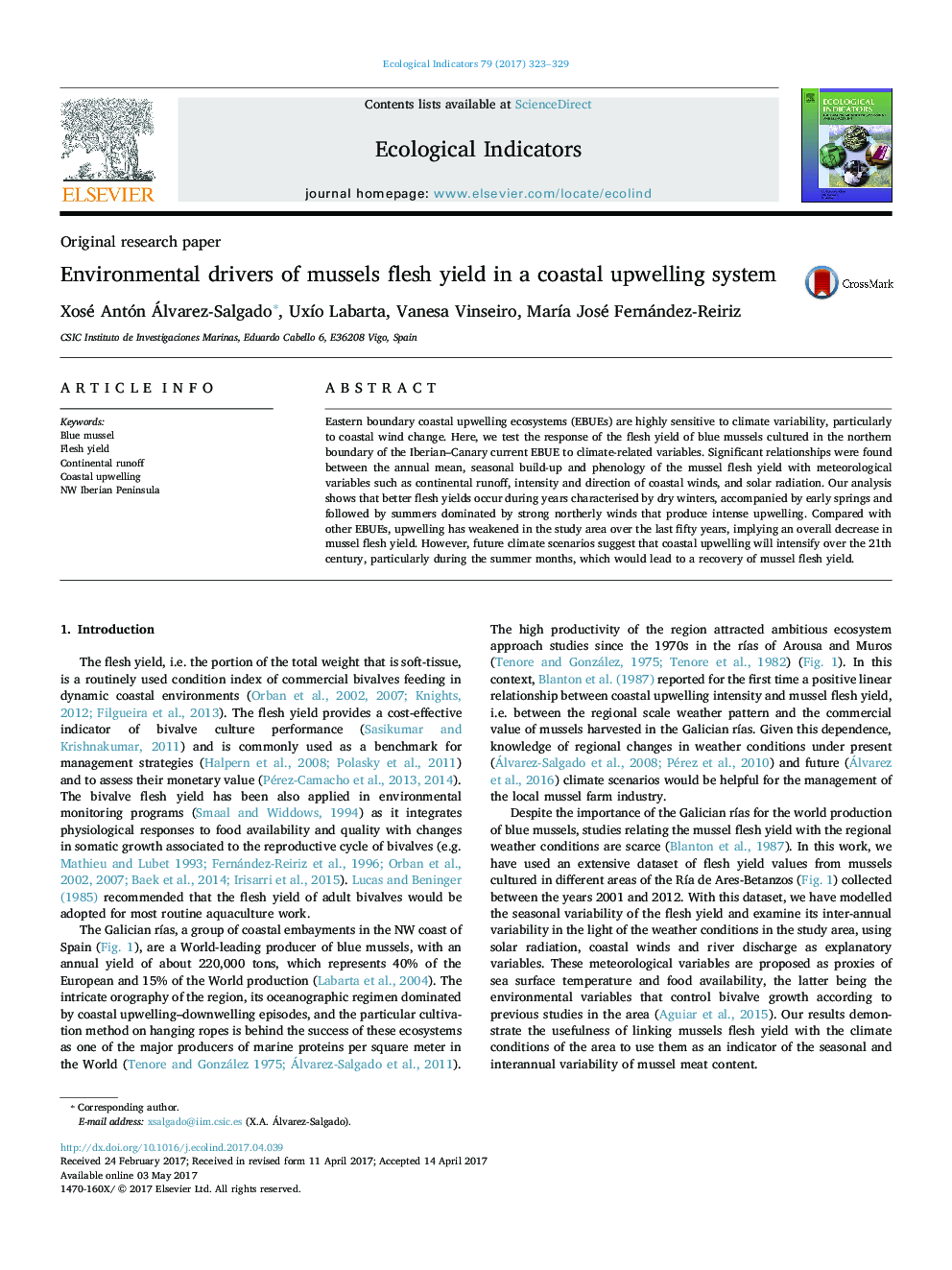| Article ID | Journal | Published Year | Pages | File Type |
|---|---|---|---|---|
| 5741779 | Ecological Indicators | 2017 | 7 Pages |
â¢The interannual variability of mussel flesh yield of NW Spain is linked to regional climate.â¢Continental runoff affects inversely the annual mean mussel flesh yield.â¢Upwelling affects positively the summer increase of the mussel flesh yield.â¢Solar radiation affects positively the timing of the summer increase of flesh yield.
Eastern boundary coastal upwelling ecosystems (EBUEs) are highly sensitive to climate variability, particularly to coastal wind change. Here, we test the response of the flesh yield of blue mussels cultured in the northern boundary of the Iberian-Canary current EBUE to climate-related variables. Significant relationships were found between the annual mean, seasonal build-up and phenology of the mussel flesh yield with meteorological variables such as continental runoff, intensity and direction of coastal winds, and solar radiation. Our analysis shows that better flesh yields occur during years characterised by dry winters, accompanied by early springs and followed by summers dominated by strong northerly winds that produce intense upwelling. Compared with other EBUEs, upwelling has weakened in the study area over the last fifty years, implying an overall decrease in mussel flesh yield. However, future climate scenarios suggest that coastal upwelling will intensify over the 21th century, particularly during the summer months, which would lead to a recovery of mussel flesh yield.
Graphical abstractDownload high-res image (120KB)Download full-size image
